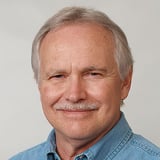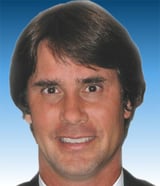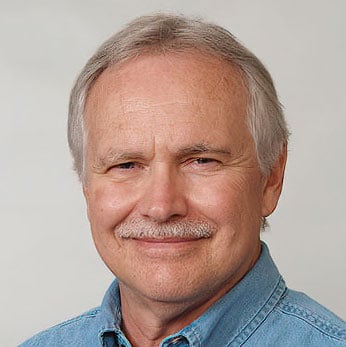]The following tip is from the ISA book by Greg McMillan and Hunter Vegas titled 101 Tips for a Successful Automation Career, inspired by the ISA Mentor Program. Greg offers his career perspectives in this post. This is Tip #51.
I earned a degree in engineering physics, a now-defunct program at Kansas University created for nuclear submarine captains. Doing double duty, I took the required courses for a physics degree, plus 32 hours of engineering electives. With job offers from aerospace, chemical, and communication companies, I chose the chemical company because the campus was impressive, and I would have my own cubicle, but I had no idea what an instrument engineer did. I had never even heard of the profession until my interview. I didn’t expect to use my courses in quantum mechanics, statistical physics and astrophysics, although I would later see The Uncertainty Principle, Spin, and Relativity in executive decisions. I was unprepared for the fact that nothing I learned in getting my degree was used on the job except for a few concepts from courses in heat transfer and fluid mechanics and an electronics lab for test instrumentation.

Process automation was a fortunate career choice, leading to countless opportunities, mainly because of the people I met. My mentor was an instrument technician responsible for the instrument design in a new process, as well as three renovated production units scheduled to start-up within two years. He did not have a degree but had 20+ years of experience and the friendliest and kindest attitude. I was immediately sent to the field in electrical and instrument (E&I) construction to make sure the E&I systems were calibrated, installed, and commissioned. The union pipefitters and electricians assigned had no experience with instruments, valves, control rooms, and motor control centers. We learned together. The new process start-up was difficult at best, but in the end all of the units came online successfully. I learned 10 years’ worth of stuff in two years and went on to other construction and design assignments, taking advantage of my cohort Stan Weiner’s knowledge. I got an invitation to engineering technology after doing an extracurricular dynamic simulation of compressor control, gaining access to the world’s best in modeling and control, finding great articles and books, and seeking the experts among the suppliers. I asked intelligent questions, and no one ever refused to talk to me.
I still enjoy great discussions with automation professionals through my Control Talk column. There is no real interview, just a couple of hours’ conversation that captures essential practical knowledge. I met Hunter Vegas this way. Our three-part Control Talk series—and now the book 101 Tips for a Successful Automation Career—are great examples of the value of connecting diverse expertise.
Concept: Success as an automation professional requires broad technical knowledge. You are a generalist dependent upon other people’s expertise that is gained on the job and largely undocumented. Communication and interpersonal skills are more important than ever. Good conversation can be mutually beneficial in terms of broadening horizons.
Details: Stop by the office of process, mechanical, E&I, and configuration engineers in your plant—or corporate offices—with an intelligent question. First, do your homework by talking with associates, searching the Internet, and checking out handbook sections on the subject. Armed with knowledge, call the corporate office of your supplier and ask for technical support. Follow up with anyone who gives you advice. Engineers love to solve problems—take advantage of this. Get to know the technicians in the instrument shop. Ask questions about what works and what doesn’t. When in a plant, spend each morning in a control room to see what the operators are doing, and become aware of any problems they are having with loops. Review trends for oscillations and trajectories. Patterns are often more apparent in the PID output since the PID is transferring variability from the process variable to the output. Group all the process and utility flows on the same trend with a time scale of about 20 deadtimes of the slowest loop to see where changes start and how they propagate. Check these trends for different shifts to see if there are operational differences. Ask the operators what is occurring during the worst trends.

Watch-Outs: Experts can be wrong. Never discount the possibility that some aspect outside an expert’s knowledge may be at play. Provide polite feedback, but do not try to change the expert’s mind, and do not hesitate to seek advice from the same expert for the next problem. Do not expect expert systems to capture this expertise. Expert systems were the rage in the late 1980s. Nearly all expert systems in the process industry went out of service often as soon as the expert left the control room. Human expertise is often more fuzzy, disorganized, intuitive, and heuristic than analytical. Incessant chatter and a few false alarms ended up getting these systems turned off sooner than later.
Exceptions: Do not ask maintenance questions during a turnaround or ask operations questions during a shutdown, startup, or a flurry of alarms.
Insight: Engineers, technicians, and operators will tell you what they know if your questions are intelligent and non-confrontational.
Rule of Thumb: Start a conversation with everyone responsible for the successful implementation, maintenance, and operation of your designs with a friendly, open, humble, and patient approach.
About the Authors Gregory K. McMillan, CAP, is a retired Senior Fellow from Solutia/Monsanto where he worked in engineering technology on process control improvement. Greg was also an affiliate professor for Washington University in Saint Louis. Greg is an ISA Fellow and received the ISA Kermit Fischer Environmental Award for pH control in 1991, the Control magazine Engineer of the Year award for the process industry in 1994, was inducted into the Control magazine Process Automation Hall of Fame in 2001, was honored by InTech magazine in 2003 as one of the most influential innovators in automation, and received the ISA Life Achievement Award in 2010. Greg is the author of numerous books on process control, including Advances in Reactor Measurement and Control and Essentials of Modern Measurements and Final Elements in the Process Industry. Greg has been the monthly "Control Talk" columnist for Control magazine since 2002. Presently, Greg is a part time modeling and control consultant in Technology for Process Simulation for Emerson Automation Solutions specializing in the use of the virtual plant for exploring new opportunities. He spends most of his time writing, teaching and leading the ISA Mentor Program he founded in 2011.
Gregory K. McMillan, CAP, is a retired Senior Fellow from Solutia/Monsanto where he worked in engineering technology on process control improvement. Greg was also an affiliate professor for Washington University in Saint Louis. Greg is an ISA Fellow and received the ISA Kermit Fischer Environmental Award for pH control in 1991, the Control magazine Engineer of the Year award for the process industry in 1994, was inducted into the Control magazine Process Automation Hall of Fame in 2001, was honored by InTech magazine in 2003 as one of the most influential innovators in automation, and received the ISA Life Achievement Award in 2010. Greg is the author of numerous books on process control, including Advances in Reactor Measurement and Control and Essentials of Modern Measurements and Final Elements in the Process Industry. Greg has been the monthly "Control Talk" columnist for Control magazine since 2002. Presently, Greg is a part time modeling and control consultant in Technology for Process Simulation for Emerson Automation Solutions specializing in the use of the virtual plant for exploring new opportunities. He spends most of his time writing, teaching and leading the ISA Mentor Program he founded in 2011.
 Hunter Vegas, P.E., holds a B.S.E.E. degree from Tulane University and an M.B.A. from Wake Forest University. His job titles have included instrument engineer, production engineer, instrumentation group leader, principal automation engineer, and unit production manager. In 2001, he joined Avid Solutions, Inc., as an engineering manager and lead project engineer, where he works today. Hunter has executed nearly 2,000 instrumentation and control projects over his career, with budgets ranging from a few thousand to millions of dollars. He is proficient in field instrumentation sizing and selection, safety interlock design, electrical design, advanced control strategy, and numerous control system hardware and software platforms.
Hunter Vegas, P.E., holds a B.S.E.E. degree from Tulane University and an M.B.A. from Wake Forest University. His job titles have included instrument engineer, production engineer, instrumentation group leader, principal automation engineer, and unit production manager. In 2001, he joined Avid Solutions, Inc., as an engineering manager and lead project engineer, where he works today. Hunter has executed nearly 2,000 instrumentation and control projects over his career, with budgets ranging from a few thousand to millions of dollars. He is proficient in field instrumentation sizing and selection, safety interlock design, electrical design, advanced control strategy, and numerous control system hardware and software platforms.




